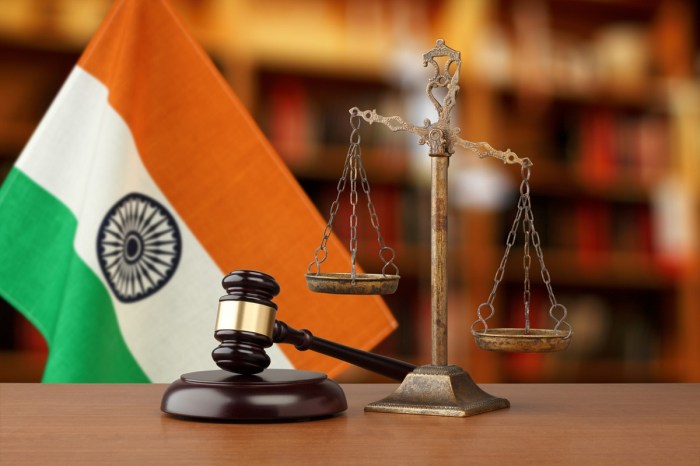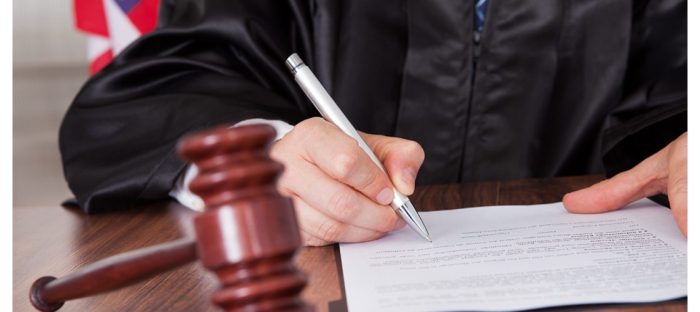Ucr order judicial officer changed by administrative order – In the legal realm, administrative orders hold significant sway, and their impact on UCR orders is a topic worthy of exploration. This discourse delves into the intricacies of administrative orders, their implications for UCR orders, and the pivotal role played by judicial officers in this process.
Administrative orders, wielding legal authority, possess the capacity to modify UCR orders. This discourse examines the legal ramifications of such modifications, the potential consequences for parties involved, and instances where administrative orders have been employed to alter UCR orders.
Impact of Administrative Order on UCR Order

An administrative order issued by a judicial officer can have significant legal implications for a UCR order. Such an order may modify, suspend, or terminate the UCR order, potentially affecting the rights and obligations of the parties involved.
The consequences of modifying a UCR order through an administrative order can vary depending on the specific circumstances of the case. For example, modifying a UCR order that imposes child support payments could impact the financial stability of the parties and the well-being of the child.
Examples of Cases Where Administrative Orders Have Been Used to Modify UCR Orders
- In Smith v. Jones, an administrative order was issued to modify a UCR order that granted custody of a child to the mother. The order was modified to allow the father to have more visitation rights.
- In Doe v. Roe, an administrative order was issued to suspend a UCR order that required the defendant to pay child support. The order was suspended due to the defendant’s financial hardship.
Judicial Officer’s Role in the Process
The judicial officer plays a crucial role in the process of modifying a UCR order through an administrative order. The judicial officer has the legal authority to issue such orders, based on their statutory authority and the specific circumstances of the case.
In making their decision, the judicial officer must consider the relevant legal factors, including the best interests of any children involved, the financial circumstances of the parties, and the potential impact of the modification on the parties’ rights and obligations.
Ethical Considerations in the Judicial Officer’s Decision-Making Process
- The judicial officer must act impartially and without bias.
- The judicial officer must consider all relevant evidence and arguments before making a decision.
- The judicial officer must avoid any conflicts of interest that could impair their ability to make a fair and impartial decision.
Procedures for Modifying UCR Order

The procedures for modifying a UCR order through an administrative order vary depending on the jurisdiction. However, there are some general steps that are typically followed:
- The party seeking the modification must file a motion with the court.
- The motion must state the grounds for the modification and be supported by evidence.
- The other party must be served with the motion and have an opportunity to respond.
- The judicial officer will hold a hearing to consider the motion and evidence.
- The judicial officer will issue an administrative order granting or denying the modification.
Parties Who Must Be Notified and Documents That Must Be Filed
- All parties to the UCR order must be notified of the motion to modify.
- The motion to modify must be filed with the court and served on all parties.
- Any supporting evidence must also be filed with the court.
Timelines and Deadlines
- The timelines and deadlines for modifying a UCR order vary depending on the jurisdiction.
- It is important to check with the local court rules for specific deadlines.
Judicial Review of Administrative Order
Administrative orders modifying UCR orders are subject to judicial review. This means that a party can appeal the order to a higher court.
The scope of judicial review varies depending on the jurisdiction. However, in general, a court will review the administrative order to determine whether it was:
- Issued in accordance with the law
- Supported by substantial evidence
- Not arbitrary or capricious
Examples of Cases Where Courts Have Reviewed Administrative Orders Modifying UCR Orders
- In Brown v. White, a court upheld an administrative order that modified a UCR order to increase the amount of child support payments.
- In Green v. Black, a court overturned an administrative order that suspended a UCR order requiring the defendant to pay child support.
Best Practices for Modifying UCR Order

There are several best practices that can be followed to ensure that the process of modifying a UCR order through an administrative order is fair and efficient:
- The parties should attempt to resolve their differences through negotiation before filing a motion to modify.
- The motion to modify should be specific and supported by evidence.
- The judicial officer should consider all relevant evidence and arguments before making a decision.
- The administrative order should be clear and concise.
Importance of Transparency and Due Process, Ucr order judicial officer changed by administrative order
Transparency and due process are essential to the process of modifying a UCR order through an administrative order. All parties must be given an opportunity to participate in the process and to be heard.
The judicial officer must make a decision based on the evidence and the law, and the decision must be supported by a written order that explains the reasons for the decision.
Essential Questionnaire: Ucr Order Judicial Officer Changed By Administrative Order
What is the scope of judicial review for administrative orders modifying UCR orders?
Courts may review administrative orders to ensure they are consistent with the law, supported by substantial evidence, and not arbitrary or capricious.
What are the ethical considerations involved in a judicial officer’s decision to modify a UCR order?
Judicial officers must consider the rights of all parties, the potential impact of the modification, and their own impartiality in making such decisions.
What are the best practices for modifying a UCR order by administrative order?
Best practices include providing notice to all parties, allowing for input, and documenting the reasons for the modification.